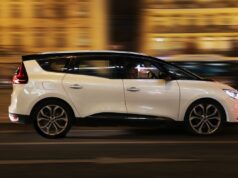Critics of electric vehicles have always been quick to question whether EVs are actually clean vehicles. Since they first took the road back in the 2000s, EVs have been under constant scrutiny to address manufacturing concerns, battery power sources as well as overall autonomy.
Even after continuous debating, the credibility and efficiency of electric vehicles still remain unanswered. While the EV pros have promoted its eco-friendliness, the skeptics still question many factors that could determine the true picture behind EVs. We’ve listed down a few of these popular factors that can help answer this question.
The Battery Composition
The manufacturing process of the batteries for electric vehicles has often come into question. The composition of the battery is made up of a range of rare earth metals. The extraction and manipulation of these metals can contribute to carbon emissions.
To add to this, a report by the International Council on Clean Transportation (ICTT) stated that, along with the composition of battery, the country in which the batteries are being produced is equally impacting the high levels of emissions.
Lifetime Difference
The report by ICTT also brought across the difference noticed in emissions between electric and internal combustion over the course of their lifetimes. It was noted that EVs produce the bulk of their emissions through their manufacturing process and the sourcing of their energy.
With no combustion and complete absence of tailpipe emissions, EVs still have a head start in producing close to no running emissions. On the other hand, while internal combustion engines have been steadily reducing their emissions since 2000, they are still way behind on recovering from the damages done to the environment due to the emissions.
Moreover, as EVs become more common, battery recycling will eventually become more efficient and bring down the extraction of new materials. This will reduce the reliance on mining and the production of new batteries. When you look at the total impact caused by their lifetime, EVs are considerably lower on emissions than vehicles that run on fossil fuels.
The Future of Transport
With the advancement of technology, current EV grids are marching towards reducing their dependence on fossil fuels while also increasing their renewable energy production. As EVs already produce fewer emissions through their life irrespective of the energy source, it goes to show that EVs are the future of the vehicle world.
Car manufacturers around the world have also started to accept the fact that EVs are less polluting and will eventually reduce total carbon emissions. EVs are going to become even more efficient, sustainable and affordable in the future. The economy scale is going to benefit EV manufacturing as we prepare for better infrastructure, more efficient processes, and techniques, etc.
To conclude we would like to say that currently, because of the manufacturing processes, EVs might be contributing more towards a diminishing environment. However, in the long run, EVs will offer a pathway to greatly reduce greenhouse gas emissions and become the vehicle of the future.





